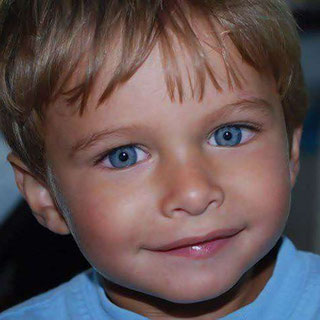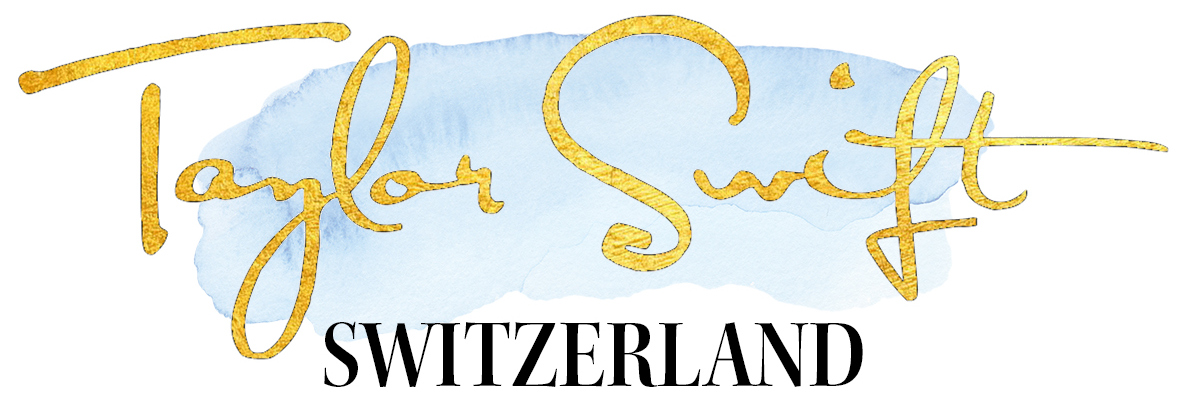
Ronan
Charity Single | 2012

"Ronan" is a charity single released on September 8, 2012, by Taylor to the iTunes Store. The lyrics are based on a blog she read about a four-year-old boy, Ronan, who died from neuroblastoma in 2011. Taylor wrote the song by putting together quotes from blog creator Maya Thompson, Ronan's mother. Thompson is credited as a co-writer of the song.
Taylor first performed the song live for "Stand Up to Cancer" in September 2012, and has only performed it publicly one other time, at the Glendale, Arizona stop of "The 1989 World Tour", at which the Thompson family was in attendance. All proceeds from sales of the single go to help fight cancer.
BACKGROUND AND COMPOSITION
Taylor wrote the song after reading Maya Thompson's blog. Thompson is the mother of four-year-old Ronan Thompson, who died in 2011 of neuroblastoma. He had been treated at "Barrow Neurological Institute at Phoenix Children's Hospital". Maya began writing in August 2010 when Ronan was diagnosed and she continued penning her entries in the blog "Rockstar Ronan" during the nine months that Ronan fought the illness before passing away in May 2011, just three days before he would have turned four. Maya worked through her grief by continuing the blog, writing heartbreaking letters to her late son, whilst also raising money and awareness for childhood cancer causes.
The pair met in October 2011, when Taylor invited Maya to her concert at the Jobing.com Arena in Glendale, Arizona. She wrote about her reaction when Taylor told her that she'd penned the song inspired by her blog entries, "My calmness soon turned to complete and utter frozen shock when these words came out of her mouth. 'I wrote a song for Ronan,'" and she said "'The tears started pouring down my cheeks as soon as I heard her say those words. But her words didn't stop there. Not only did she write a song for you, but she wanted to know if it would be alright to perform it on the nationally televised show." Taylor credits Ronan's mother as the co-writer of the song.
PERFORMANCE AND RELEASE
"Ronan" was released digitally on iTunes following a performance of the song on "Stand Up To Cancer", with all the proceeds going to cancer-related charities, as stated by Taylor herself via Twitter. President and CEO of Big Machine Records, Scott Borchetta, confirmed via Twitter that the song wasn't part of the tracklist of Taylor's then soon-to-be-released fourth studio album "RED", but that they "may have to rethink" about adding it to the album. They never added it to the album, but it is available on iTunes US.
"Ronan" received 220,000 downloads in its first week, debuting at #2 on the Hot Digital Songs chart and #16 on the Billboard Hot 100.
CRITICAL RECEPTION
"Ronan" received acclaim from critics. Rolling Stone Magazine called the song "heartbreaking". Bill Dukes of Taste of Country wrote: "It was clear [Swift] was just the voice for Maya Thompson..." Ed Masley of The Arizona Republic said that 'Ronan' may very well be [Swift's] finest hour as an artist."

CRITIC REVIEW
Why "Ronan" Is Taylor's Best Song to Never Appear on an Album: Critic's Take | Billboard, 2017

Andrew Unterberger takes a moment to consider Taylor's best song to never make an album: the devastating charity single "Ronan".
Over the course of her decade-plus career, what's made Taylor Swift's body of work so formidable is not only the towering five LPs she's released, but the piled-up odds and ends she's casually tossed off around them. Between the soundtrack singles ("Safe & Sound", "Today Was a Fairytale"), the deluxe edition bonus cuts ("New Romantics," "The Moment I Knew"), even at least one holiday classic ("Christmases When You Were Mine"), there's easily a sixth LP's worth of gold fans can dig for around the margins of her catalog. But the best of all her loosies might be a one-off song that never found a proper home, within her discography or anyone else's: the 2012 iTunes-only single "Ronan".
Though "Ronan" was actually a top 20 hit on the Billboard Hot 100, debuting at No. 16 after its first week of sale, even fans of Taylor's would be forgiven for not knowing of its existence. The only real promotion the singer-songwriter gave it in 2012 was on the televised performance that served as the song's raison d'être: the 2012 "Stand Up to Cancer" telethon. That's because the song was inspired by - and in fact cribbed directly from - the "Rockstar Ronan" website, written by blogger Maya Thompson about her four-year-old son Ronan's ultimately fatal battle with cancer.
In Taylor Swift's music, few things if any are as sacrosanct as childhood. As is true of many stars who get a little too famous a little too early in their personal development, Swift idealized youth in her songs as a time of both limitless wonder and absolute security: "Take me back to when our world was one block wide," she sings in her self-titled debut's "Mary's Song," a tale of lifelong romance that starts when its subjects are 7 and 9.
Indeed, each of Swift's first three albums includes a track that starts as an ode to rose-tinted pre-adolescence: "The Best Day" (from 2008 sophomore LP "Fearless") begins with a five-year-old Taylor hugging her mother's legs, while "Never Grow Up" (from 2010's "Speak Now") sees Taylor playing the older sister, living vicariously through a younger charge, wishing them to embrace their inner Peter Pan: "It could stay this simple." Even on that same album's "Innocent," a patronizing post-VMAs rejoinder to Kanye West, Swift's most sincere attempt to find empathy with West comes via her taking things all the way back to the beginning: "Wasn't it easier in your lunchbox days? Always a bigger bed to crawl into..."
It's not hard to see, then, why the story of Ronan Thompson spoke to her. As much as Swift tended to bemoan her lost youth in her music - "Never Grow Up" ends with her turning her nightlight on in her new big-city apartment, cold and frightened and decidedly adult, concluding "Wish I'd never grown up" - at least she had one to feel nostalgic and wistful for. The idea of never even making it to that stage would understandably be almost too paralyzing to even contemplate.
But Taylor did contemplate it, for one song, with mother Maya's help. Swift was reportedly such an avid reader of "Rockstar Ronan" that she invited Maya Thompson to meet with her at her "Speak Now Tour" stop in Thompson's Arizona hometown in 2011. A year later, Swift called Maya about "Ronan" - a ballad she had written from the mother's perspective, with lyrics taken directly from her own blog quotes, addressed to her son - and asked for permission to play it at the "Stand Up to Cancer" televised event. Thompson, bawling, of course agreed.
Though the song was released as a stand-alone download the day after the Stand Up telethon - with Thompson a credited co-writer, and all proceeds going to cancer charities - no one would confuse "Ronan" for a Taylor Swift single. Though Swift was no stranger to the ballad by 2012, she'd never been quite this lethargic or minimal before: just Taylor's trembling vocal, some gentle piano plinks and undisruptively brushed drums, and an electric guitar riff echoing out into the great unknown. Musically, "Ronan" has more in common with a slowcore indie-rock album like Low's "Things We Lost in the Fire" than it does "Speak Now".
The words to "Ronan" might have been first composed by Thompson, but the lyrics still read as pure Taylor. No other pop songwriter has her eye for visual detail ("Race cars on the kitchen floor, plastic dinosaurs") or her ability to condense an entire relationship's dynamic into one phrase's worth of shorthand ("I love you to the moon and back"). The finest moments combine writerly observation with irrepressibly human distress; "Flowers pile up in the worst way, no one knows what to say/ About a beautiful boy who died," the second verse offers, a poetically observed note smashing into a cold, hard truth.
Rather than tell Ronan's story in narrative, Swift conveys it in elliptical lyrical snapshots of moments and sentiments, giving the song an almost surreal, dream-like quality that makes the song's undertow of unavoidable reality all the more crushing when it hits. Swift wisely avoids any attempt at finding meaning in the tragedy, coming closest with the bridge's borderline-optimistic conclusion: "What if the miracle was even getting one moment with you?" But even that glimmer of peace is quickly revealed as a setup for one more go-round the song's cataclysmic - exponentially more so with each repetition - chorus: "C'mon baby, with me, we're gonna fly away from here/ You were my best four years." The final time through, Taylor seemingly chokes on her words on the first line and elects to start over. Then her voice breaks on the second line, and so do we.
Look, there are some songs that are tearjerkers, and there are some songs you shouldn't even risk thinking about in public. "Ronan" is unquestionably the latter. Not just because the subject matter is sad - it is, impossibly so - but because the level of compassion involved in the song's conceiving and execution is similarly overwhelming. You don't even need to really hear the song to be wrecked by it; just its existence is enough. But listening to it is its own ruination: Every lyrical turn and phrasing choice of Swift's is both bursting with vitality and inexorable in its creeping death. Calling it maudlin wouldn't be unfair, but it wouldn't be entirely accurate either, and would imply that there's room for restraint in a song about childhood cancer, anyway. Tellingly, the only visual accompaniment "Ronan" received is the song's iTunes cover image, nothing but stark lettering against a black background, as if it were a horror movie. Because it is.
Despite being one of her greatest achievements as a singer-songwriter, Taylor Swift let go of "Ronan" almost immediately. The song never appeared on a further Swift release, and today is unavailable for streaming on Spotify or Apple Music. Any promotion for the song fell to Thompson herself; Taylor rarely commented about the song publicly. In fact, after the "Stand Up" event, she only played "Ronan" once, at another Arizona tour stop on the "1989 World Tour". With Thompson in the audience, she introduced the song by admitting that since she became a fan of Maya's blog, "cancer has hit really close to me and my family" - the final word sticking in her throat. Before starting, she warned her fans that she might not be able to get through the performance. Close call at the end, maybe, but she did.
Swift's avoidance of "Ronan" since the song's debut is, in a way, the greatest tribute she could pay it. This wasn't a song to become a fan favorite, to be a concert singalong or a treasured deep cut. This wasn't a song to be part of Swift's story at all - it was too real, too personal, too, well, not about her. To return to it would risk making it stock, robbing of its incalculable power for those who needed it most.
And so in a career where so often, every step seems plotted out like scenes in a long movie, Swift had the wisdom to leave "Ronan" on the cutting room floor. It leaves the song as a sadly overlooked testament not only to her artistry, but - particularly in 2017 - to her increasingly unrecognized humanity. Even on her way to total world domination, she never lost sight of the fact that some things are bigger than Taylor Swift.
Source: Billboard






